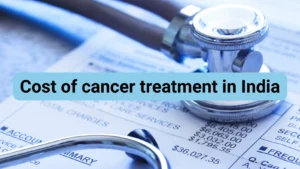Health Checkup 2026: Your Comprehensive Guide to Modern Preventive Care
The **Health Checkup 2026** is far more than a routine annual appointment; it’s a proactive step toward a healthier, longer life. Entering the year 2026, the landscape of healthcare is undergoing a significant transformation. Preventive care, which focuses on identifying and managing health risks before they become serious problems, is now at the forefront of medical practice. Consequently, taking charge of your well-being through regular health assessments is one of the most valuable investments you can make in yourself.
In this guide, we’ll explore what makes a **2026 health checkup** so unique, including key screenings and the latest technological advancements shaping the future of medicine. Ultimately, you’ll discover how to navigate your health journey with greater confidence and insight.
Why Your Health Checkup 2026 is More Crucial than Ever
The world is changing, and so are the demands on our health. As a matter of fact, lifestyle factors, environmental stressors, and the rise of chronic conditions make regular monitoring essential. A comprehensive health checkup in 2026 provides a baseline of your health, helps track changes over time, and allows for early intervention. This is particularly vital for conditions like heart disease, diabetes, and cancer, where early detection dramatically improves outcomes.
Furthermore, these checkups are an excellent opportunity to partner with your doctor. During these visits, you can discuss your lifestyle, family history, and any concerns you may have. Therefore, your doctor can create a personalized care plan tailored to your specific needs.
Essential Screenings for Your 2026 Health Checkup
Medical guidelines are continuously updated to reflect new research and population health needs. Here are some of the most critical screenings recommended for adults in 2026, according to leading health authorities like the United States Preventive Services Taskforce.
Cardiovascular Health Screenings
Heart disease remains the leading cause of death worldwide, but many risk factors are manageable. A heart health screening in 2026 will typically include:
- Cholesterol Panel: This blood test measures your total cholesterol, LDL (“bad”) cholesterol, HDL (“good”) cholesterol, and triglycerides to assess your risk for heart disease.
- Blood Pressure Monitoring: High blood pressure, often symptomless, significantly increases the risk of heart attacks and strokes. In fact, regular checks are vital.
- Electrocardiogram (ECG): For at-risk individuals, an ECG can detect irregularities in heart rhythm.
Cancer Screenings
Catching cancer early is paramount. Screening recommendations vary by age, gender, and family history. Consequently, staying on schedule is key. Here are common screenings included in a **Health Checkup 2026**:
- Mammograms: For women aged 40 and older, annual mammograms are crucial for detecting breast cancer.
- Cervical Cancer Screening: In addition, women aged 21-65 should undergo regular Pap smears and HPV tests.
- Colonoscopy: For adults aged 45 and older, a colonoscopy is the gold standard for detecting colorectal cancer.
- Lung Cancer Screening: Furthermore, for adults aged 50-80 with a history of heavy smoking, an annual low-dose CT scan is recommended.
Diabetes and Metabolic Health
With rising rates of obesity, screening for Type 2 diabetes is more important than ever. Furthermore, early detection can prevent severe complications. A screening usually involves a blood glucose test or an HbA1c test. Doctors also consider your BMI and other risk factors to determine the frequency of screening, therefore ensuring you get the right care.
Mental and Behavioral Health
In 2026, mental health is finally being integrated into routine physical checkups. For example, screenings for anxiety and depression are becoming standard practice. Your doctor may use a simple questionnaire to assess your emotional well-being and offer resources for stress management, counseling, or other support. This is another key part of a modern **2026 health checkup**.
Pro Tip: A Comprehensive Health Checkup Can Save Your Life
Regular checkups can uncover health issues you were not even aware of. Think of it as a comprehensive scan of your body, helping you stay ahead of potential problems. By taking this proactive step, you’re not just reacting to symptoms; instead, you’re actively building a foundation for long-term health and vitality. This is the ultimate goal of a **Health Checkup 2026**.
The Role of Technology in Your Health Checkup 2026
Technology is revolutionizing preventive care, making it more personalized and efficient. As a result, your **Health Checkup 2026** might look very different from previous years.
Wearable Technology and Remote Monitoring
Your smartwatch is no longer just a gadget; it’s a vital health tool. Today’s wearables can continuously monitor your heart rate, sleep patterns, and physical activity. Consequently, this data provides your doctor with valuable, real-time insights into your overall health, allowing for more proactive and data-driven care decisions.
AI and Machine Learning
Artificial intelligence is being used to analyze vast amounts of data—from medical histories to genetic information—to identify health risks with unprecedented accuracy. For example, AI algorithms can help radiologists detect early-stage lung cancer with a high degree of precision, often outperforming traditional methods. On the other hand, this technology, moreover, can also predict a person’s future health risks. This cutting-edge approach is a hallmark of a modern **health checkup 2026**.
Telemedicine and Virtual Care
Telehealth, which gained significant traction in recent years, continues to evolve. In 2026, virtual consultations are more sophisticated, allowing for remote monitoring and follow-up care. This offers greater convenience and access to healthcare, especially for routine checkups and managing chronic conditions.
Comparison of Health Checkup Packages
| Feature | Standard Checkup | Comprehensive Health Assessment | Personalized Platinum Package |
|---|---|---|---|
| Core Tests | Basic blood work, blood pressure, BMI, physical exam. | Includes standard tests plus advanced screenings (e.g., specific cancer markers, advanced lipid panel). | All comprehensive tests, plus genetic risk analysis, AI-driven diagnostics, and full-body MRI. |
| Technology | Minimal. | Integration of electronic health records. | Integration with wearables, AI diagnostics, and remote patient monitoring. |
| Consultation | Single consultation with a general practitioner. | Consultation with multiple specialists (e.g., cardiologist). | Consultations with a multidisciplinary team, including nutritionists and genetic counselors. |
| Cost | Generally covered by insurance. | Higher cost, may require partial patient payment. | Premium cost, often tailored for executive health. |
The choice of a **2026 health checkup** package depends on your age, lifestyle, family history, and personal goals. As we step into 2026, it’s worth considering a more comprehensive assessment to fully harness the power of modern preventive medicine. For this reason, many people are looking to global health hubs for premium options.
Why Medical Tourism for Your Health Checkup 2026?
In many cases, an ordinary health checkup may not be enough. Individuals seeking more advanced, personalized care, particularly with modern technologies and specialist consultations, often turn to medical tourism. Destinations like Turkey, Thailand, and Germany offer state-of-the-art facilities with access to top specialists and cutting-edge equipment. In fact, many people prefer this route for its affordability without compromising quality. This can make premium health checkups, which might be cost-prohibitive in a home country, much more accessible. Consequently, you can receive a higher level of care and personalized attention, often in a relaxing environment.
Ultimately, a **Health Checkup 2026** is an opportunity to take control of your well-being. Furthermore, it’s a chance to benefit from new medical advancements and expert insights. Therefore, don’t wait until you’re feeling unwell to address your health. Take a proactive step by scheduling a comprehensive checkup and explore the possibilities of modern preventive care.
Frequently Asked Questions About Health Checkups (FAQ)
▼
An annual physical is a basic exam that typically includes a physical assessment and a review of your medical history. On the other hand, a comprehensive health checkup is a more in-depth assessment that includes a wide range of blood tests, advanced screenings, and consultations with specialists. As a result, it provides a much more detailed picture of your overall health and helps identify a broader range of potential risks.
▼
The frequency of health checkups varies based on your age, gender, lifestyle, and existing health conditions. For example, most health organizations recommend a basic annual checkup for adults. However, if you are over 50 or have a family history of chronic diseases, your doctor may recommend more frequent screenings and specialized assessments.
▼
In 2026, health checkups are leveraging new technologies such as wearable devices for continuous health monitoring, AI-powered diagnostics for early disease detection, and advanced telemedicine platforms for remote consultations. These technologies help make checkups more personalized and predictive, allowing for earlier intervention.
▼
A comprehensive checkup is important because it can identify potential health problems before symptoms appear. By detecting risk factors and early signs of disease, doctors can recommend preventive measures or early treatments that can prevent the condition from progressing. Therefore, it empowers you to take control of your health proactively.
▼
To make the most of your checkup, you should bring a list of all your current medications and supplements, a brief summary of your health history and family medical history, and a list of questions or concerns you have. Also, consider wearing comfortable clothing and preparing for any fasting requirements for blood tests.
▼
Not all basic health checkups include comprehensive cancer screenings. However, a doctor will typically discuss age-appropriate screenings, such as mammograms, Pap tests, and colonoscopies, during a routine visit. More extensive cancer screenings are often part of specialized or comprehensive health assessment packages.
▼
Preventive care is a branch of medicine focused on preventing diseases before they occur. This includes a wide range of services such as health screenings, immunizations, and counseling on healthy lifestyle choices. The goal is to keep you healthy, rather than just treating you when you’re sick.
▼
For individuals with chronic conditions, a regular checkup provides an opportunity to monitor the condition, adjust medications, and discuss management strategies. It helps ensure that your treatment plan is working effectively and that you’re on track to prevent complications. Furthermore, it allows for a continuous dialogue with your healthcare provider.
▼
Vaccination guidelines are updated annually. In 2026, it is important to stay current on standard immunizations like the flu shot and Tdap booster. Additionally, discussions about updated COVID-19 boosters and other vaccines, such as those for shingles or pneumonia, should be part of your checkup, especially for older adults.
▼
While a checkup cannot definitively predict the future, it can assess your risk factors for various conditions. By analyzing your lifestyle, family history, and test results, doctors can identify a predisposition to certain diseases. This knowledge empowers you to make proactive changes to your lifestyle to minimize these risks.
▼
Yes, many clinics and hospitals offer specialized health assessments. These can be focused on areas like cardiovascular health, cancer screening, or executive wellness. Such packages provide a more in-depth look at a particular aspect of your health, tailored to your specific concerns or risk factors.
▼
To make your checkup more effective, be open and honest with your doctor about your health habits and concerns. Also, ask questions and actively participate in the discussion about your results and treatment plan. Taking a proactive role in your own care is essential for the best outcomes.
▼
Mental health is increasingly seen as integral to overall physical health. In 2026, doctors are more likely to screen for conditions like anxiety and depression and to discuss stress management strategies. This holistic approach recognizes the interconnectedness of mind and body and ensures that both are being cared for.
▼
Yes, blood tests are a key component of most standard checkups. They can provide valuable information on various health markers, including cholesterol levels, blood glucose, and organ function (liver and kidney). These tests are essential for detecting conditions that may not have obvious physical symptoms.
▼
Your lifestyle has a direct impact on your health. Habits such as diet, exercise, smoking, and alcohol consumption can all influence your blood pressure, cholesterol levels, and overall wellness. Discussing these habits openly with your doctor allows for more accurate assessment and better-tailored advice.
▼
Family history is a crucial part of a health checkup because it can reveal a genetic predisposition to certain diseases. Knowing your family’s medical history helps your doctor create a personalized screening plan and allows for early, targeted interventions to mitigate risks.
▼
BMI (Body Mass Index) is a simple screening tool used to assess a person’s weight relative to their height. While it is not a perfect measure of health, it can indicate a potential risk for obesity-related conditions such as heart disease and diabetes. It serves as a starting point for discussions on weight management and diet.
▼
Vaccinations are a fundamental part of preventive care. During a checkup, your doctor will review your vaccination history and recommend any necessary updates. This ensures you are protected from preventable diseases like the flu, tetanus, and pneumonia, which is crucial for both your personal health and public health.
▼
Stress can have a significant impact on your physical health, leading to issues like high blood pressure and heart problems. During a checkup, you can discuss your stress levels with your doctor, who may offer resources, coping strategies, or referrals to specialists to help you manage it effectively.
▼
In a comprehensive checkup, an MRI (Magnetic Resonance Imaging) can provide highly detailed images of organs and tissues. It is often used to screen for specific issues that may not be visible with other tests, such as early-stage tumors, or to assess the health of the brain, spine, and joints. It provides a non-invasive way to get a more detailed look inside the body.
▼
AI is used in diagnostics to analyze vast datasets, including medical images and patient records, more quickly and accurately than a human could. It can identify subtle patterns and risk factors that might be missed, leading to earlier and more precise diagnoses. This technology is becoming a powerful tool for doctors in their quest for better patient outcomes.
▼
A health checkup can be the first step toward effective weight management. Your doctor can assess your BMI, blood sugar, and cholesterol levels, which can be indicators of weight-related health issues. They can then offer personalized advice on diet and exercise or refer you to a nutritionist to create a tailored plan.
▼
A “wellness visit” often refers to an annual checkup with a focus on preventive care and creating a personalized health plan. A “checkup” can be a broader term. While both aim to promote health, wellness visits often specifically include a health risk assessment and a review of your preventive screening schedule.
▼
Credible sources for health information typically come from government health agencies like the CDC, reputable medical schools, and established health organizations like the Mayo Clinic. Always be cautious of information from unverified sources, and consult your doctor for personalized advice.
▼
A common misconception is that a checkup is only for when you’re sick. In contrast, the true purpose is preventive. Another myth is that you only need a checkup if you feel unwell. In reality, many serious conditions have no early symptoms, making regular screenings critical for early detection and prevention.
▼
Choosing the right package depends on your individual needs. For example, a young, healthy individual may only need a standard checkup, whereas someone with a family history of cancer or heart disease might benefit from a more comprehensive package. You should consult with a healthcare professional or a medical tourism expert at wmedtour.com to find the best fit for you.
▼
A full-day assessment offers a highly detailed and efficient way to evaluate your health. It includes a series of consultations with various specialists and a wide range of tests, all conducted in a single day. This comprehensive approach provides a complete picture of your health status and offers a high level of convenience.
▼
Getting a good night’s sleep before a checkup is crucial, as it can affect your blood pressure and other vitals. To improve your sleep, avoid caffeine and alcohol, eat a light dinner, and try to relax with a book or meditation before bed. A calm mind and body will help ensure the most accurate results from your assessment.




